Below is a viewpoint from the Foresight Africa 2023 report, which explores top priorities for the region in the coming year. Read the full chapter on gender.
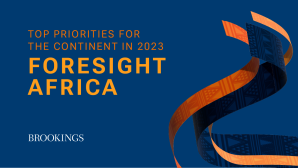 The COVID-19 pandemic has had a devastating effect on women’s economic and employment prospects in Africa. However, it also shed light on a critical issue that has remained unaddressed for too long: How to effectively support women working in the informal sector.
The COVID-19 pandemic has had a devastating effect on women’s economic and employment prospects in Africa. However, it also shed light on a critical issue that has remained unaddressed for too long: How to effectively support women working in the informal sector.
Across Africa, a staggering 90 percent of employed women are in the informal sector. Even during stable economic periods, these women live on the precipice—one illness or unexpected expense away from economic catastrophe. They often have no economic safety net; many do not even have access to a bank account.
When the pandemic hit, some women have had to make the difficult decision about whether to risk their health to continue to work long hours in crowded spaces for less financial return while balancing increased caring responsibilities as schools closed, and family members fell ill.
As the world looks towards a post-pandemic recovery period, we must grab the opportunity to transform the informal sector—and with it the economic prospects of tens of millions of African women.
The public sector has a critical role to play in this transformation, particularly in four key areas: Skills development, financing, market access, and procurement.
Women working in the informal sector have incredible drive and an entrepreneurial spirit. However, many would benefit from acquiring skills to help them run their businesses more effectively—from marketing to financial management. The public sector can support this through the creation of business incubation and training programs tailored to women in the informal sector.
Women also have unequal access to finance. On the supply side, they face higher-than-average interest rates and challenging collateral requirements. On the demand side, women often self-select out of the credit market because they believe they are not creditworthy. An AfDB study showed that 6.5 percent of female-managed firms in Africa reported that they did not apply for new loans or credit lines because they believed their application would not be approved, in stark contrast to only 3.5 percent of male-managed firms that reported this as a main reason. The public sector must address these challenges through regulation and public awareness campaigns geared towards women entrepreneurs.
Women also have unequal access to finance. On the supply side, they face higher-than-average interest rates and challenging collateral requirements. On the demand side, women often self-select out of the credit market because they believe they are not creditworthy.
Many women entrepreneurs also face challenges with market access. The “old boys club” is alive and well across a range of sectors and women often lack the networks needed to sell their goods at a larger scale. Governments can help address this challenge by supporting women to access regional markets—particularly in sectors like agriculture where women are overrepresented as smallholder farmers.
Finally, the public sector can support women entrepreneurs through procurement.
As the Director of the Gender, Women and Civil Society Department at the AfDB, our strategy is to support the Bank’s efforts to advance women’s entrepreneurship across the continent through programs such as Affirmative Finance Action for Women in Africa (AFAWA), which helps women develop skills, access financing, and access public procurement opportunities in West Africa. In doing so, it is turning women-led businesses into the engines that will drive Africa’s economies forward.
An inclusive post-pandemic recovery will only be possible if we address the needs of women in the informal sector; the first step is bringing them out of the shadows.
The Brookings Institution is committed to quality, independence, and impact.
We are supported by a diverse array of funders. In line with our values and policies, each Brookings publication represents the sole views of its author(s).

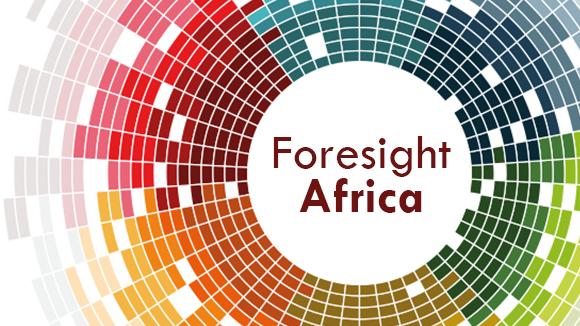
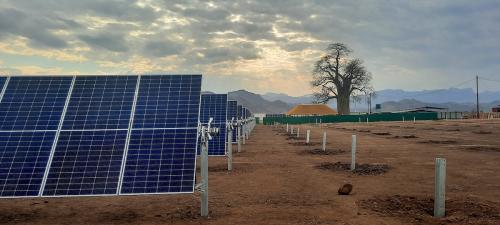

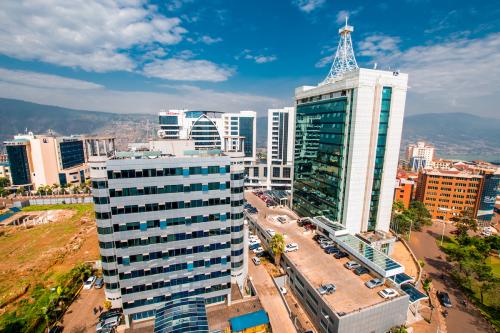


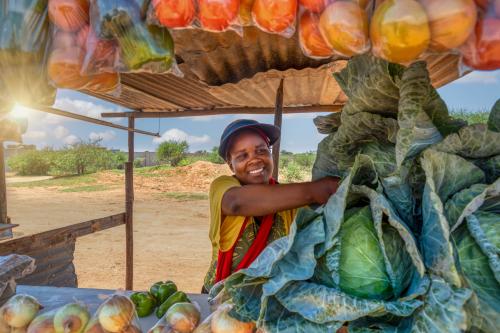
Commentary
COVID-19 shed light on the challenges facing Africa’s women: The recovery must bring them out of the shadows
August 22, 2023